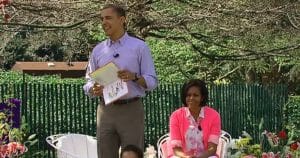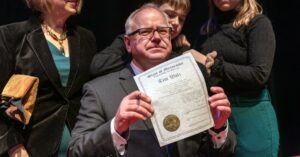Texas Attorney General Targets Latino Democrats In Voter Fraud Raids
State-Wide Raids Spark Calls For Federal Investigation
Latino civil rights groups in Texas, led by the League of United Latin American Citizens (LULAC), are now at the center of a controversial voter fraud investigation spearheaded by State Attorney General Ken Paxton. Accusations of voter suppression and intimidation mark the inquiry, which specifically targets Latino communities across Texas.
Members of LULAC, including prominent figures like Lidia Martinez, experienced raids by Texas authorities, resulting in the confiscation of personal devices and questioning regarding voter registration efforts. These raids were part of a broader investigation declared by Paxton into claims of unlawful voter registrations among noncitizens.
LULAC responded forcefully by sending a detailed grievance to the U.S. Justice Department, expressing concerns over what they describe as targeted harassment meant to disenfranchise Latino voters. The Justice Department confirmed receipt of the letter but has so far declined to comment further on the matter.
Early Morning Raids Raise Community Alarms
The controversy began to unfold last week, as LULAC offices and the homes of its members were subjected to early morning raids. According to LULAC officials, these actions are not just isolated incidents but part of a disturbing pattern. LULAC’s leadership contends that the raids are a tactic used to instill fear and discourage voter participation within Latino communities.
A press release from Paxton's office a week earlier hinted at concerns over noncitizens influencing U.S. elections, indicating that these raids are aimed at investigating reports of electoral malpractices during the 2022 elections. The referrals prompting these investigations came from the 81st Judicial District Attorney, focusing suspicions on massive election fraud.
During the raids, numerous personal items were seized, and LULAC members faced intense and sometimes confrontational questioning about their activities related to voter registration. This approach by Texas authorities notably escalates the tensions between state officials and minority electoral engagement groups.
LULAC Members Stand Defiant Amid Allegations
Lidia Martinez, a longstanding LULAC member, relayed her dismay and frustration at a press conference following the raids. Her straightforward denouncement, "This is a free country, this is not Russia," highlighted the perceived severity and injustice of these investigations to the public. Martinez, along with others, characterized the raids as an excessive use of force and an abuse of governmental power.
Similarly, Manuel Medina, chair of the Tejano Democrats and another LULAC member, endured similar treatment. The raids on their homes, according to LULAC CEO Juan Proaño, are emblematic of a broader attempt by Paxton to suppress Latino voter turnout. "Attorney General Paxton is using his position of authority to harass and intimidate Latino non-profit organizations and their members," Proaño articulated during one of many responses to the media.
The heated rhetoric from both sides underscores the volatile nature of this conflict. While Paxton asserts that his actions are justified by an imperative to maintain election integrity, his critics see a different motive. They argue that Paxton is strategically targeting communities that could wield significant influence in the shifting political landscape of Texas.
Implications of the Investigation on Future Elections
The Election Integrity Unit, established in response to President Trump's electoral defeat in 2020, despite assurances of a secure election from Trump's own officials, underscores the ongoing tensions surrounding electoral legitimacy in the United States. Its role in these raids situates it at the heart of a contentious debate over voter rights and election security.
As the federal government remains tight-lipped about its next steps, the Latino community in Texas braces for more challenges ahead. The outcome of this investigation could have far-reaching implications for voter engagement and civil rights in Texas, particularly as the state heads towards another election cycle with a highly mobilized and increasingly vigilant electorate.
For now, the standoff continues, with both LULAC and Attorney General Paxton holding their ground, each asserting a version of justice and electoral integrity that fundamentally conflicts with the other. The wider community watches, anxious and eager for a resolution that reinforces, rather than undermines, democratic participation.




